"Charming Xiangxi": A must-see performance when visiting Zhangjiajie, the best way to understand Xiangxi culture
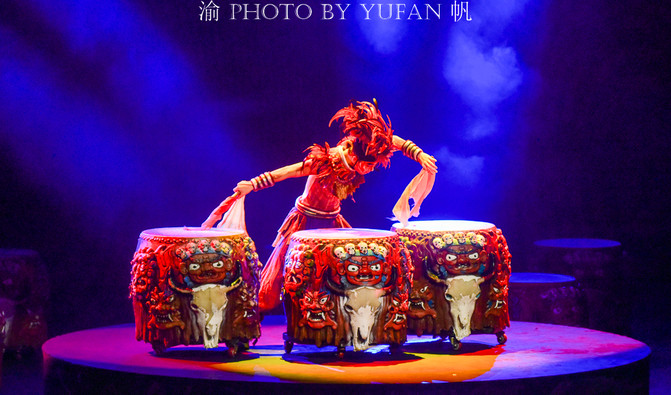
With the development of economy and society, people's pockets are getting bigger and bigger, and their requirements for quality of life are getting higher and higher. Not only has tourism become a necessary element of life, but also enjoyment is becoming more and more important during the journey. In the past, when traveling, most of them were to travel across mountains and rivers to see the scenery. Now, when traveling, you need not only to see the scenery during the day, but also to have entertainment at night, such as soaking in hot springs, visiting night markets, eating delicious food, watching performances, etc., especially performances. It allows people to understand the unique culture of a place in a more acceptable way, so it is not only popular among tourists, but also a standard feature in every large-scale scenic spot.
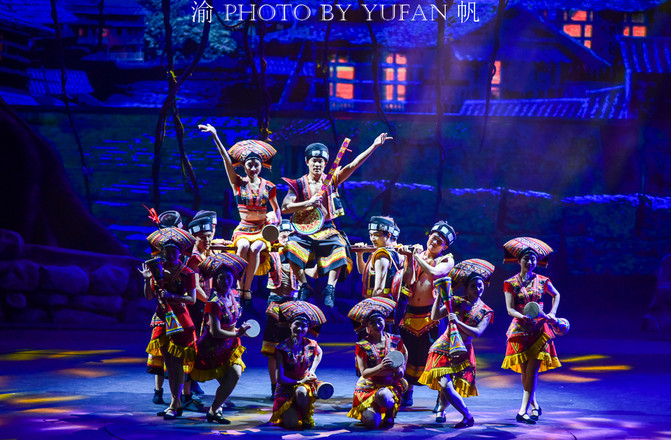
Zhangjiajie, as a world natural heritage site, a national AAA-level tourist attraction and a world geological park, naturally also has large-scale performances that condense local culture. They were built with a huge investment of 450 million yuan and were personally conducted by famous domestic director Feng Bugang and famous musician Liu Huan."Charming Xiangxi", this program has been watched by nearly 20 million viewers since its launch in 2000, and has also won the "National Cultural Tourism Key Recommended Project","Top 30 Chinese Cultural Brands", Honors such as "Top Ten Tourism Performing Arts Box Office in China","Top Ten Tourism Performing Arts Institutions in China", and "Model Collective of National Unity and Progress".
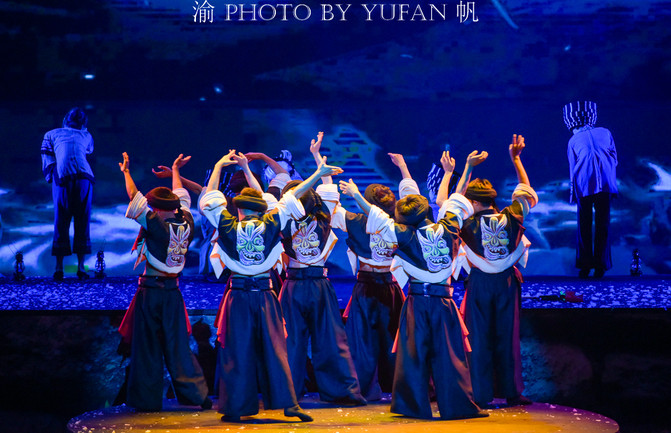
"Charming Xiangxi" takes Xiangxi culture as its soul. Although Zhangjiajie does not belong to Xiangxi Prefecture, it is a truly large area of Xiangxi. This is a vast and magical land where Han, Tujia, Miao, Dong, Yao, Bai, Gelao and other dozen ethnic minorities live. They coexist harmoniously and use their outstanding wisdom and tenacious will to create a rich, mysterious and legendary local culture in Xiangxi. Now most of it exists in the form of national intangible cultural heritage."Charming Xiangxi" systematically combs these cultures and shines with their unique charm.
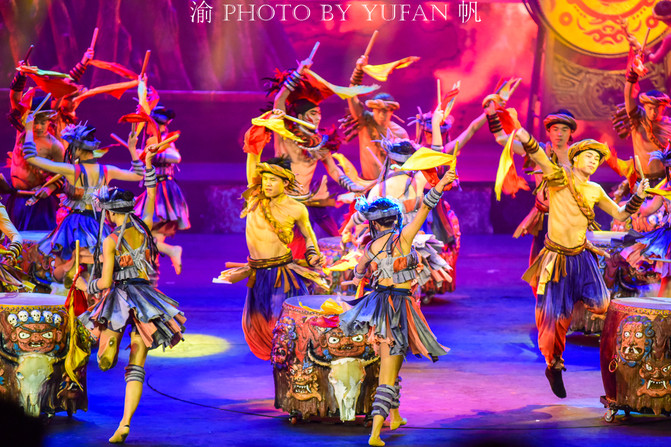
Prologue·Fire Drum
"Charming Xiangxi" is divided into four chapters: romance, mystery, happiness and passion. The first thing we see is a burst of jubilant encouragement. The name of the program is "Fire Drum". Drilling wood to make fire is the greatest discovery of primitive humans. Drum is an important carrier for the ethnic minorities in Xiangxi to express their feelings and express their emotions. This is a group of people who cannot go without fire or drums for a day. Their passion, imagination, courage and strength are forged in the fire and inspired by the drums. In the thousands of years of historical journey, all their great steps and all their fascinating stories have been accompanied by soaring fire and roaring drums.
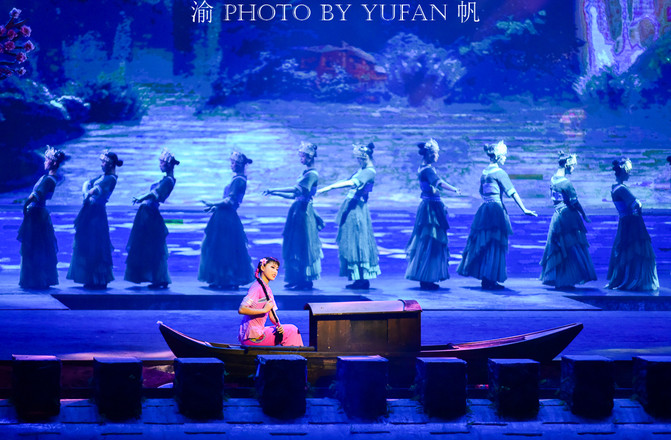
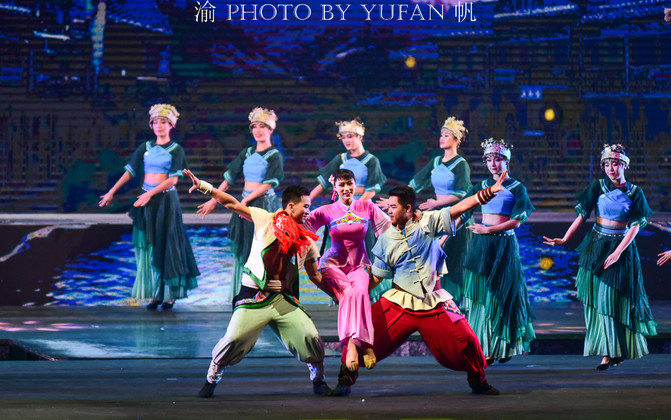
"Ancient Border City. Cui Cui "
"Border Town" is a representative work of Shen Congwen, a famous modern Chinese writer. The work vividly reproduces the emotional story of Cui Cui, Tianbao and Nuo sent three people, and performs a pure interpretation of the goodness of human nature in the flexible and natural landscape. Readers from all over the world enter Xiangxi from their bright eyes and into the most beautiful soul of mankind, feel the most sincere and pure way of conveying the love between men and women, and touch another expression of beauty beyond the mortal world.
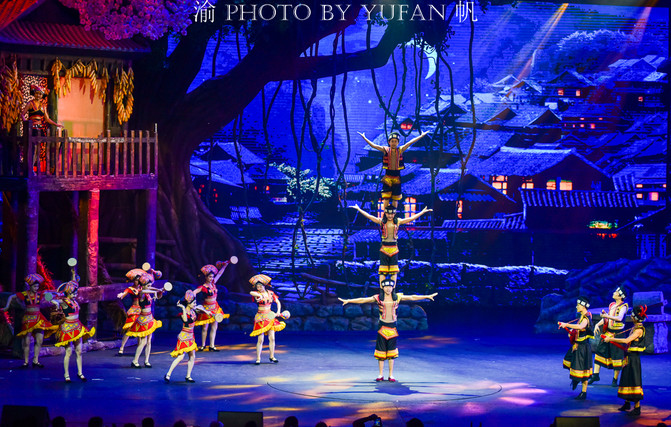
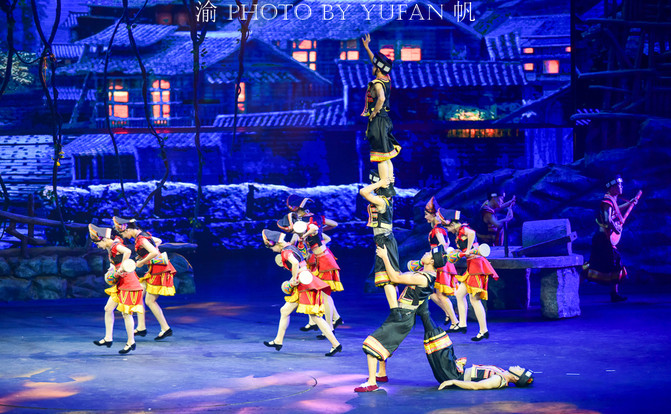
"Yao Nationality·Climbing Buildings"
The courtship method of each ethnic group accumulates its own wisdom and passion, and the Yao people in western Hunan also express their love. They love freely, passionately, and madly. The courtship tradition passed down from matriarchal society is unique, and "Climbing the Tower" is a custom of the Yao people. It has also been featured on CCTV's Spring Festival Gala before.
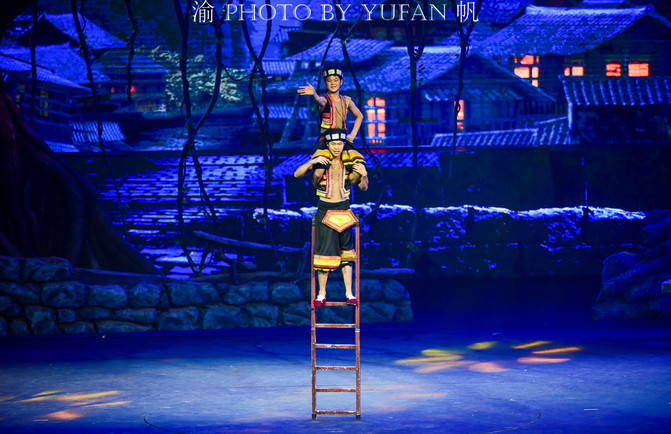
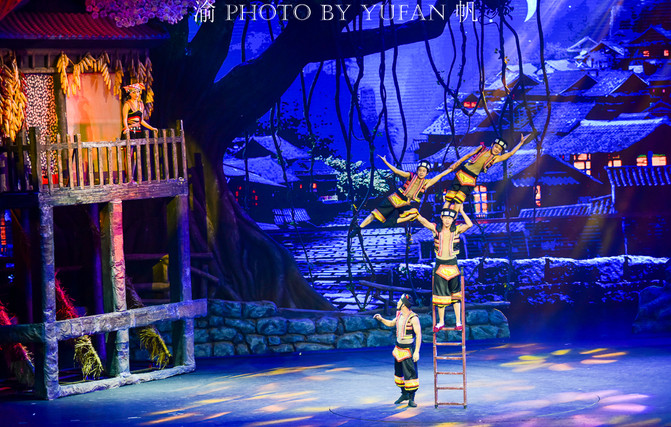
When the moon rises from the East Mountain, they will gather in small groups below the girl they love, use songs and dances to show their love, and choose by climbing stairs. This kind of original love is as clear as a spring and as strong as wine, and can provide a pure emotional feast for people who have been in the city for a long time.

"Tender Horse Mulberry Tree"
Thousands of mountains and layers of mountains are classic symbols of Zhangjiajie's natural geography. Villages face each other across the mountains, and one must use a loud singing voice to express one's meaning. As a result, China's intangible cultural heritage-Sangzhi folk songs were born here. The song became flying love, crossing mountains and ridges to the lover's chest.
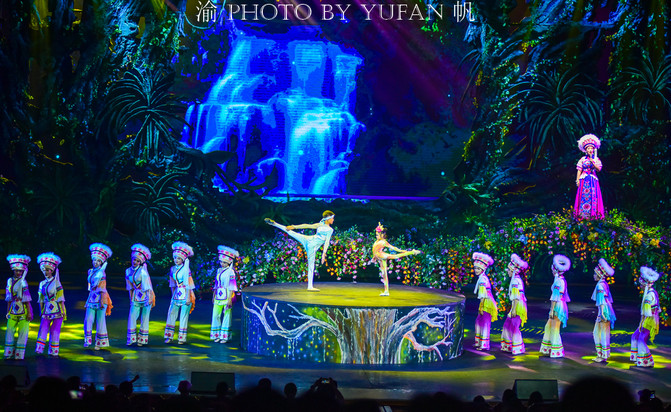
A group of Bai girls rode white clouds and drove on the long wind, with flying skirts and various manners. They turned their lingering love into softness around their fingers to show their mutual love, lovesickness and love for each other.
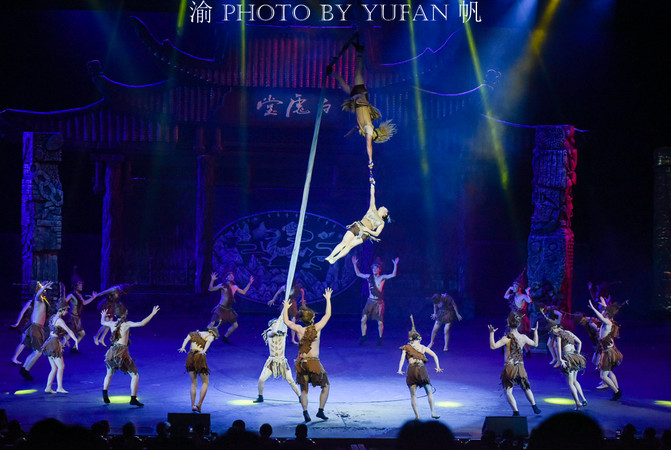
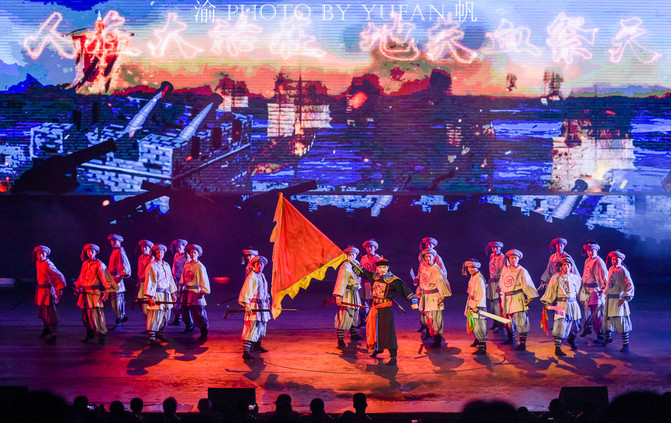
"Xiangxi Chase Corpse"
In ancient times, due to inconvenient transportation and rugged roads in southwestern Hunan, people died in other villages, and it was difficult to transport the coffin. They had no choice but to ask sorcerers and warlocks to use forbidden spells to drive away the corpses so that they could be buried back in their native land and buried in peace. This method is commonly known as the "Xiangxi Corpse Catching Technique". Putting aside its confusing superstitious elements, you can clearly feel that this unique historical and cultural relics in Xiangxi embodies the strong nostalgia of Xiangxi people for their relatives in their hometown and the reluctance to be a wandering soul in a lonely grave.
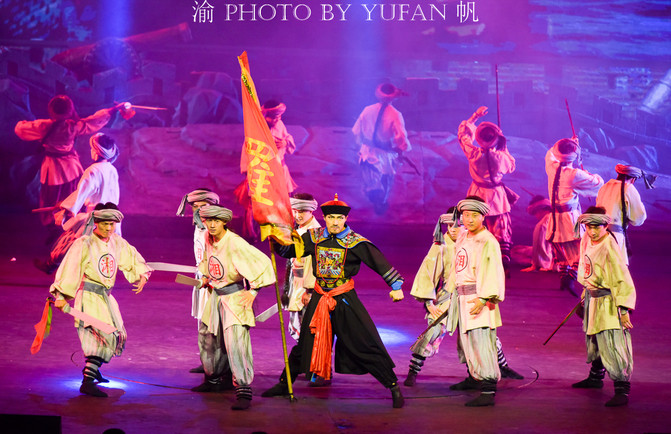
In history, the only thing that rangers, soldiers, peddlers, and soldiers who died in battle in other places or left their land was that they could move their graves back to their homes, return their souls to their native lands, and be buried in their ancestral graves. For three hundred years, soldiers in Xiangxi have defended their homes and defended the country along the coast and fought bloody battles. After every war, a large number of victims 'bodies need to be transported back to their hometowns for burial.
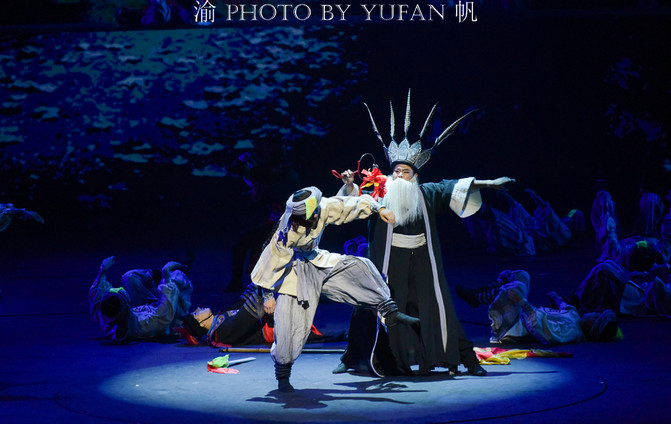
The "Charming Xiangxi" cadaver chase program captures the true historical materials of General Luo Rongguang in Xiangxi who led his troops to resist the Eight-Power Allied Forces at the age of 67 and stained Dagu with blood. It integrates the legend of "cadaver chase" to demonstrate the loyalty and patriotism of the people of Xiangxi, their love for their land and their home. Even if they have a breath left, they have to climb to the door of home!
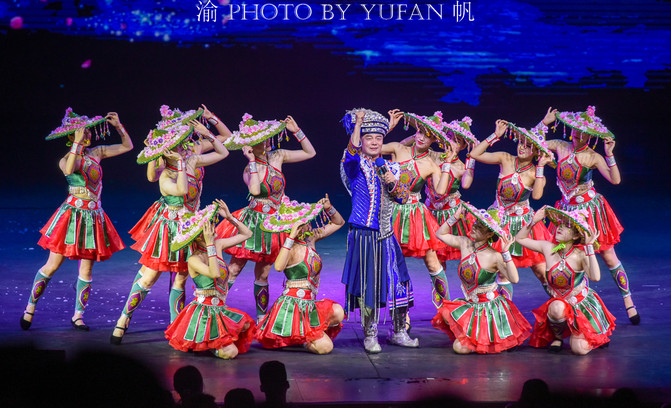
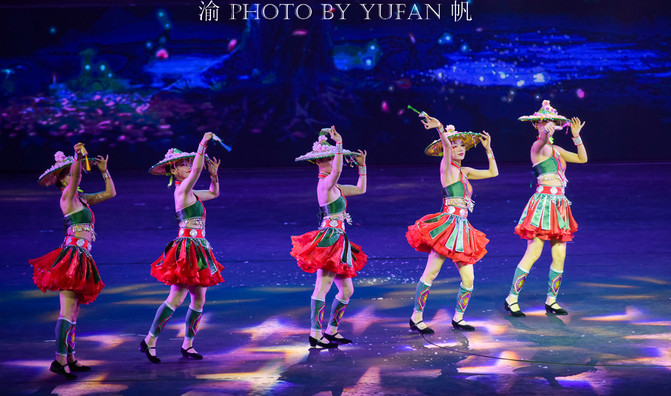
"Wild Mogus"
Maogusi is a cultural relic of ancient history in western Hunan and is known as the "living fossil of primitive drama". In the Tujia culture of Xiangxi, the form of Maogus has been repeatedly expressed by them for generations, becoming a spiritual and emotional catharsis that goes deep into the bone marrow. This source of human spirit accumulates the rare wild spirit of primitive nature. They sincerely pay homage to their ancestors, earnestly pray for a bumper harvest, and wildly express reproductive worship and naked pursuit between the sexes. The solemnity is full of wit, and the mystery is full of humor, showing the diversity, richness and vividness of the source of Xiangxi's spirit in a vivid way, and showing the strong vitality of the ancestors of Xiangxi.
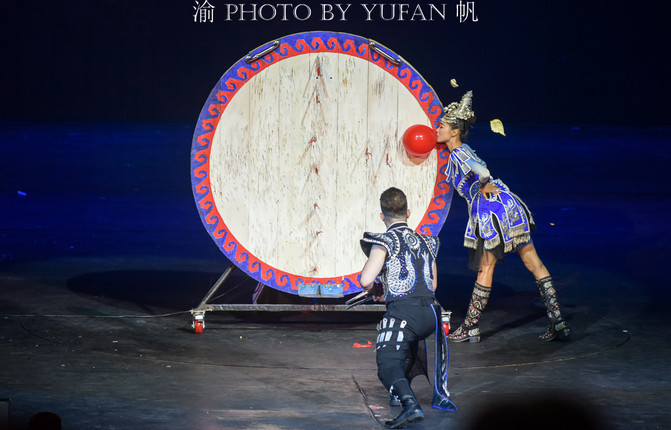
"Flying Knife Heroes"
Many people have read the martial arts masterpiece Xiao Li Flying Knife, but they don't know that the prototype of Xiao Li Flying Knife comes from the Miao nationality in western Hunan. There are two most mysterious tribes in the ancient Miao people in western Hunan. One is the Gunner Tribe of the Basha Miao people, and the other is the Flying Knife Tribe of the Wuxi Miao people. The teenagers of the Flying Knife Tribe use Flying Knife as their companions all their lives. They hate evil like hatred, draw their swords like flying flies, and look at death unafraid. Flying Knife is their life and belief.
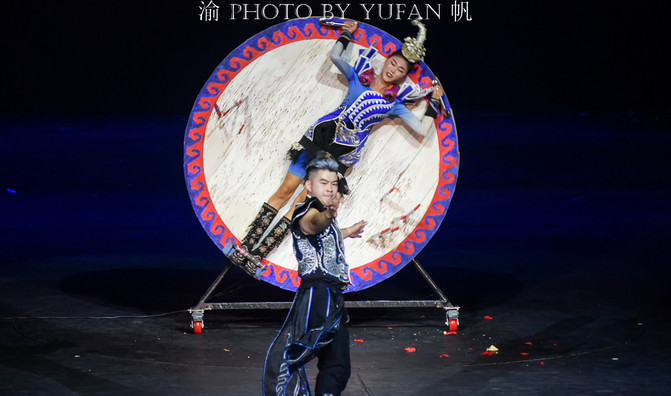
Today, in the era of peace, flying skills have entered CCTV in the form of performances and gone abroad. Hand-to-hand throwing weapons represented by flying knives, javelin, and darts occupied an important position in the era of cold weapons. By the time firearms became popular in the late Qing Dynasty, skills such as flying knives slowly transformed from actual combat to performances, becoming an important category in traditional acrobatics., passed down from generation to generation among the people. The charming guests in Xiangxi's flying knife performing are the Miao brothers and sisters, the 15th generation inheritors of the Flying Knife Tribe. They brought us an extremely shocking and wonderful performance!
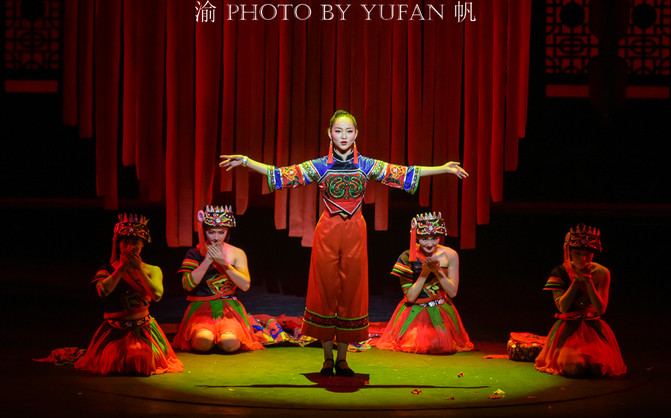
"Love Daughter Club"
On the ninth day of the seventh month of the lunar calendar, it is the Tujia "Daughter's Club". It is known as the Oriental "Valentine's Day". On this day, Tujia men and women are dressed up luxuriantly and beautifully. They use songs as a medium, emotion as a basis, the sun as evidence, and the moon as a guide to find the other half of their lives. The singing is straightforward and free, expressing the inner love without any hindrance. The singing is loud and clear, piercing into the sky, like the nature of nature.
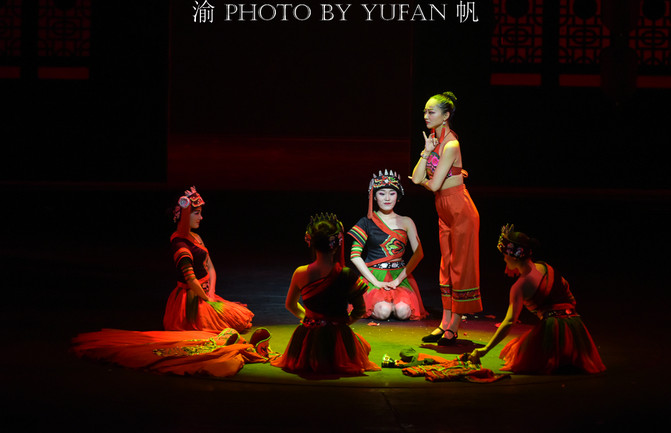
In their emotional world, what is higher than status is the singing voice, what is more charming than money is sincerity, and what is more beautiful than cheeks is the soul. Just for this day, they woven the love they had accumulated for 365 days into a rhythm and gathered it into notes, so as to wrap around their lover's arms and make an appointment for a century-old emotional bond.
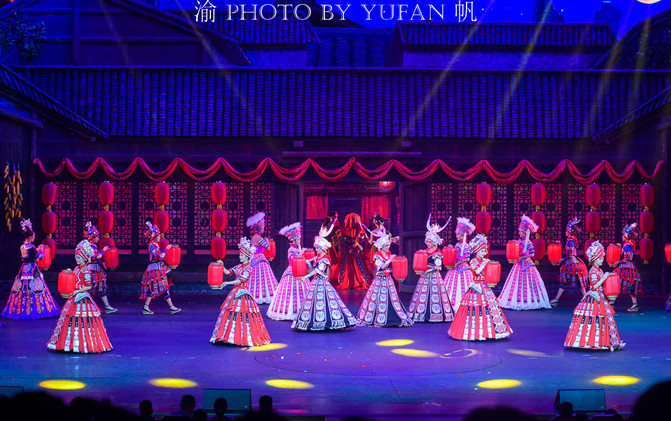
"Sadness and Joy Crying Marriage Song"
In the unique marriage customs and culture of the Tujia and Miao people in western Hunan,"crying for marriage" interprets the feeling of sorrow and joy of human beings so earth-moving. The bride began to "cry" before getting married and continued to "cry" until the day of her marriage, ranging from three to five days to more than a month. They cried for their parents, their brothers and sisters-in-law, and their sisters... In fact, what they "cried" was the kindness of their parents for raising them, the care of their brothers and sisters-in-law, and the memory of their childhood feelings and the inseparability of their hometown.
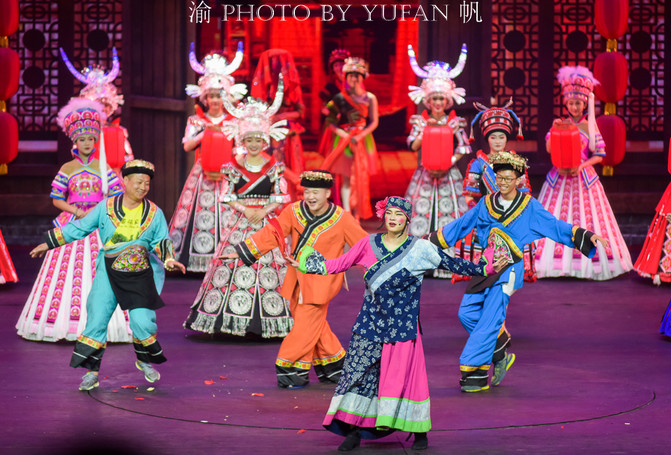
The whole performance lasted about one and a half hours. In addition to the on-site stage programs described above, there were also some wonderful performances outside the venue, such as Zhangjiajie's lying steel nail breaking a big stone on the chest,"Locking the snake","Setting the chicken","Going up the knife mountain and down the sea of fire" and other witchcraft and hard qigong. The climaxes were repeated, exciting and exciting. As Feng Xiaogang said: Only when you go to Zhangjiajie can you see such performances.
Previous Article:Have you been to all these attractions when traveling to Zhangjiajie? I will share many experiences in Zhangjiajie with you!
